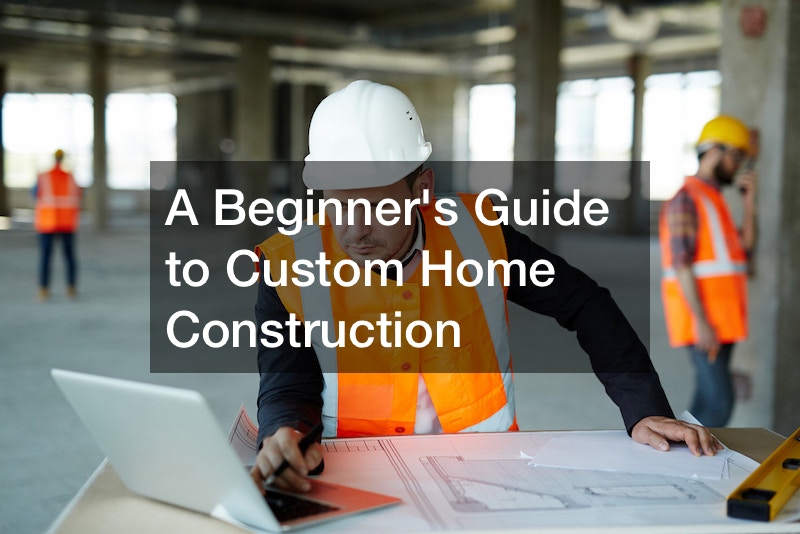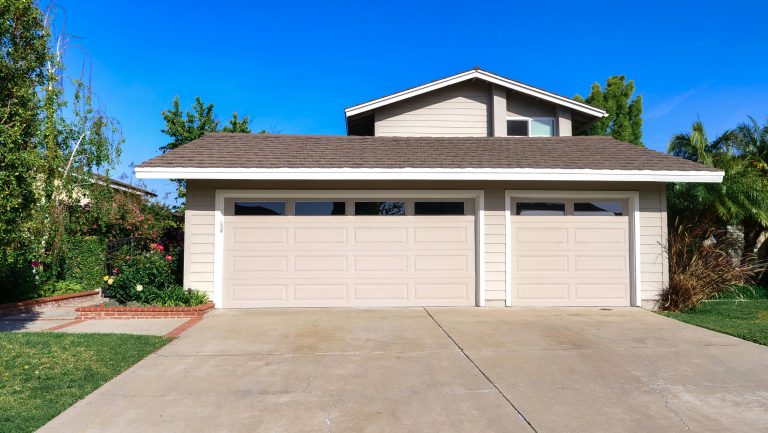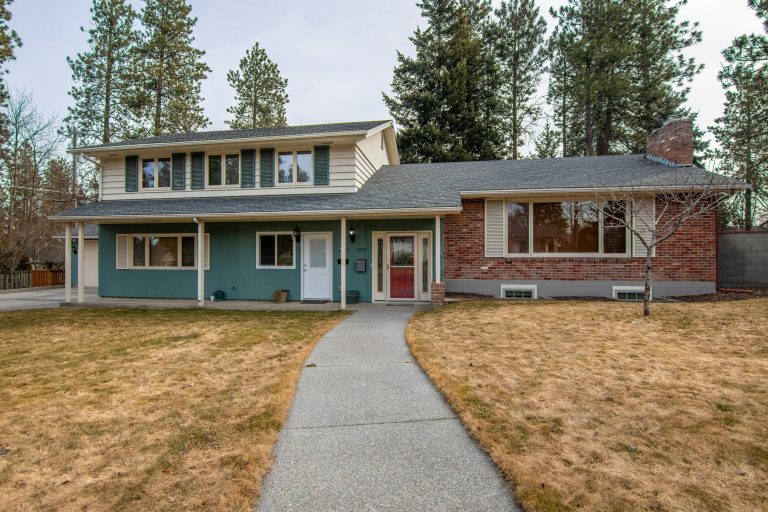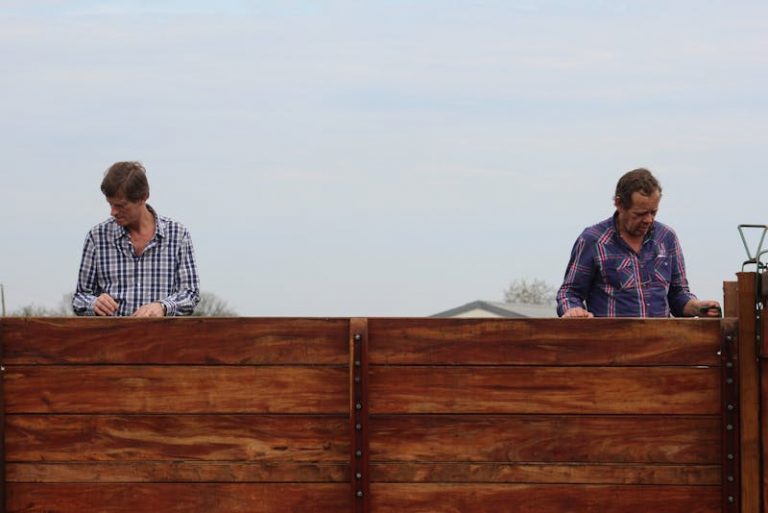

In the world of homeownership, the idea of constructing a home from scratch has become increasingly attractive to those who desire a residence that perfectly suits their unique needs and tastes. Custom home construction is not just based on personal stories; it’s supported by a growing body of data emphasizing custom-built homes’ benefits and growing popularity. According to the U.S. Census Bureau’s Survey of Construction, over 20% of newly constructed single-family homes were custom-built over the past few years, emphasizing the desire for homeowners for a home tailored to their preferences.
You might be one of those looking to build a home for yourself. Unfortunately, achieving without proper planning, preparation, and professional help can be challenging. Building a stable, well-structured, and well-designed home will require months or years of planning on a large budget, and since it is vital for your survival, you will have no room for error. However, it is an achievable project that can end up being fulfilling. Here is a guide to help you with your custom home construction plan.
Identify the Professionals You Need

Custom home construction is a multifaceted project demanding the expertise of various professionals to ensure a seamless and successful project. From conception to completion, engaging the right professionals can make all the difference in a custom home construction project that reflects your vision. You will need a reliable team with different specialties to accomplish the task. Here are a few you might need for the project’s initial phase.
A residential developer serves as the ship’s captain, overseeing the entire project from start to finish. They play a crucial role in acquiring suitable land, obtaining necessary permits, and orchestrating the overall development process. Collaborating with a skilled residential developer is essential to successfully navigate the complexities of building a custom home.
Custom home builders are the architects of your vision, turning your dream home into a tangible reality. These professionals specialize in constructing personalized homes, ensuring every detail aligns with your preferences. They work closely with you to understand your needs, provide expert advice, and execute the construction with precision and craftsmanship. While you might want a specific design for your home, custom home builders have valuable input to ensure your custom home construction project will be realistic, safe, and within budget.
The roof is the most vital part of the initial phase of custom home construction, given that it is the primary protective feature of any residential property. A roof company is indispensable in safeguarding your home against the elements. Their roofing installation, repair, and maintenance expertise is vital to ensure a secure and durable shelter. Choosing suitable roofing materials and designs is crucial, and a reputable roofing company can guide you through these decisions, ensuring the longevity and resilience of your custom home.
Once you handle the structure, you must focus on the next phase of the custom home construction plan. The systems that make a property home will be next on the priority list. This step means you might need electricians, plumbers, and HVAC specialists. They will ensure your residential space is convenient, comfortable, and livable for your family. The general contractors you work with when building your home might have these experts, but ensuring they are part of the plan is essential. Your custom home construction plans might cause complications, and hiring them after basic structural construction could make the project more time-consuming and expensive.
These professionals will help turn your dream home into reality, so ensuring they are on the payroll will be vital to your custom home construction project. Of course, there is a possibility that you might have to buy your materials. However, they can also help ensure you stay within your budget, so consulting them will be the best choice.
Start Designing Your Custom Home

After laying the foundation with the professionals who handle the structural aspects of your custom home construction, the next pivotal step involves designing the spaces that will define your living experience. This phase is where personalization becomes the spotlight, and several vital specialists play a crucial role in shaping your home according to your preferences.
Of course, the essential features will all take priority. The bathroom, bedroom, living room, kitchen, and basement will require proper design, achievable with an interior designer’s help. Interior designers can ensure that your spaces and rooms are aesthetically pleasing and functional. They can also help you choose the colors, patterns, lighting fixtures, and furniture pieces to ensure a cohesive and attractive design. An interior designer’s top priority is to ensure you have everything you need in a home before you go all out with customization, so their input will always be valuable in your project. They can take over customization tasks beyond your skills, like window treatments, lighting fixture placements, and wall-mounting efforts.
Flooring will take up most of the priority in the interior customization plan. Each room might require different materials for their floors, like tiles for the bathroom and carpets for the bedroom. Working with an interior designer can help ensure every room or space has the proper flooring design.
One of the most valuable benefits of custom home construction is the ability to include customized storage solutions. Tailoring cabinet design to your storage requirements is paramount. Whether creating a walk-in pantry, optimizing closet spaces, or incorporating built-in shelving, the goal is to maximize storage capacity while maintaining a clean and organized aesthetic. Most homes today include home offices, which means your interior designer needs to accommodate your home and office cabinet design plans. They can ensure the home meets your specific needs. If you plan on having customized storage solutions, you must have an inventory of your belongings to know which items go where.
The outdoor area might also be a priority for your custom home construction design, especially if you plan on building amenities. The inground swimming pool is a classic feature for high-end homes, and you might want one for yourself. Fortunately, you can work with an inground pool builder for the plan. The specialist has the equipment and expertise to build your outdoor amenity safely since poor construction can lead to severe water damage to your home’s foundation. Inground pool builders also know how to operate legally, collecting the proper zoning and construction permits necessary for the project.
A general contractor can handle lighter outdoor projects like outdoor decks and patios. Since the outdoor area is still technically part of the home, general contractors can include them in the design and build those amenities along with the custom home construction project’s structural phase. However, you might need specialized builders for more out-of-the-box outdoor amenities like fire pits and outdoor kitchens.
Security is another essential part of home construction, and a sturdy fence might be the first thing you’ll need for it. Fence installers have the materials and expertise to build durable protective features for your home. Having your fence installed professionally can reduce maintenance costs in the long run, ensuring their services are worth the price. They also provide a warranty if the fence gets damaged due to exterior elements like accidents or weather-related disasters. If you want more security features for your home, you can also have security cameras and motion detectors installed. Those devices will protect your custom home, ensuring you feel safe and secure.
Make Your Home Smarter

Technological integration has become a luxury and an essential component that elevates the living experience to unprecedented levels. As homeowners increasingly seek custom home construction, adding state-of-the-art technology can make their properties unique.
Smart home automation systems are the heart of a modern custom home. These systems allow homeowners to control various aspects of their living spaces, including lighting, heating, cooling, security, and entertainment, all from a centralized interface. Smart home technology enhances convenience and contributes to energy efficiency by enabling precise control over home systems.
Technology also plays a pivotal role in creating eco-friendly and energy-efficient homes. Smart thermostats, energy-efficient appliances, and automated lighting systems contribute to reducing energy consumption. Integrating sustainable technologies aligns with environmental consciousness and can result in long-term cost savings.
Incorporating technology into a custom home is about meeting current needs and future-proofing the property. Designing the house with the flexibility to accommodate emerging technologies ensures that homeowners can quickly adapt to innovations in the coming years, maintaining the home’s relevance and market value.
Make Room for Maintenance and Renovations

A custom home construction project can be ideal, but your initial plans might not be what you expected. A few flaws might show up weeks or months after the project’s completion, so making room for maintenance or upgrades might be necessary in your plans and budget.
Regular maintenance is akin to preventive care for your custom home. It helps identify and address minor issues before they escalate into significant problems, preserving the overall property value. Property management services can be pivotal in executing routine inspections, handling repairs, and ensuring your investment maintains its market appeal over time. You can have them inspect your custom home occasionally, especially when you start noticing maintenance and repair needs.
Renovations serve as an opportunity to enhance the functionality and efficiency of your home. This might apply to spaces like the kitchen, where upgrades can be challenging for the average homeowner to identify. A kitchen remodeling company can revitalize the area, ensuring your kitchen remains top of the line. They can upgrade appliances, optimize storage, and improve the overall layout, enhancing daily living and adding a contemporary touch to your custom home. The process applies to other rooms like the bathroom and the living room.
Of course, there is a possibility that you might want your entire home inspected for renovations or upgrades. Over time, wear and tear can impact the aesthetic appeal of a custom home. Renovations are essential to preserving the property’s architectural integrity, ensuring that it continues to reflect your design vision. This may involve exterior upgrades, landscaping improvements, or refreshing interior spaces to maintain a cohesive and appealing look. A home renovation contractor can help you with the process.
Incorporate Personal Touches
Of course, a custom home construction project is not complete without your personal touches. Once the home is move-in ready, you can start adding furniture and accessories that will make the property feel like home. Pay attention to the finishing touches. From personalized hardware on cabinets to unique doorknobs and handles, these small details contribute to the overall character of your home.
Dedicate spaces to your hobbies and interests. Whether it’s a home gym, a reading nook, or a crafting room, integrating areas that cater to your passions ensures that your home is a living space and a reflection of your pursuits.
You can also explore DIY furniture projects or refurbish existing pieces. Whether a hand-painted coffee table or a customized headboard, these unique pieces can become focal points in your home. If you don’t have the DIY skills to build your own, you can buy according to your tastes and preferences. As long as it is what you like, it will still reflect a home customized to your liking.
For outdoor spaces, consider creating personalized planters or garden beds. Choose plants with sentimental value or design unique planter boxes that reflect your style. Your outdoor decor can also include wooden tables, chairs, pillows, and other items that make your outdoor area feel like a hangout place.
Personal touches will define your custom-built home, making it an essential final phase of the project. It doesn’t have to be all in one go. You can invest in your home items one at a time, helping you build up your budget until you feel satisfied with what your residential property looks like.
Building a custom home can be challenging to accomplish, especially when considering your time and budget. However, it can be a worthwhile project that can ensure satisfaction for your living experience for years. With the help of professionals, proper planning, and a unique eye for design, you can accomplish the project with ease. While professionals can provide valuable assistance, a hands-on approach allows for a more intimate connection with the design process.







